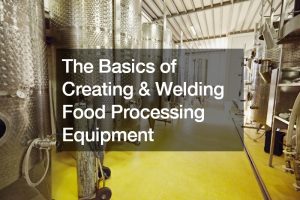- Plant-based and alternative proteins are becoming increasingly popular.
- The clean label movement focuses on products with simple, natural ingredients and minimal processing.
- Smart manufacturing technologies can help enhance production efficiency, reduce costs, and minimize waste.
- Robotics can automate packaging, labeling, and sorting products for quality control.
- Personalization and customization allow companies to develop tailor-made food products catering to individual needs.
Welcome to a new era in food manufacturing! The industry is experiencing an incredible wave of innovation and growth, driven by various factors: evolving consumer preferences, technological advancements, and the ongoing quest for sustainability. Together, these forces are reshaping how food is manufactured, packaged, and consumed — and it’s an exciting time to be a part of this transformation.
This blog post will delve into the latest trends that are revolutionizing the food manufacturing industry, providing valuable insights for entrepreneurs and businesses looking to stay ahead of the curve.
Plant-based and alternative proteins
The demand for plant-based and alternative protein sources is skyrocketing as consumers seek healthier, more sustainable, and ethical food options. Brands like Beyond Meat, Impossible Foods, and Quorn have taken the market by storm, offering meat substitutes that closely mimic the taste and texture of traditional meat products.
Moreover, newer protein sources, like insects and lab-grown meat, are gradually making their way into food products and menus, indicating a potential shift away from a meat-centric diet.
Clean label movement
Today’s consumers are more health- and environmentally conscious than ever, which has given rise to the clean label movement. This trend focuses on products that feature simple, natural ingredients, minimal processing, and transparent origins. Food manufacturers increasingly aim to reduce the number of additives, preservatives, and artificial ingredients in their offerings while providing clear information about where their food comes from and how it’s processed.
Smart manufacturing technologies

Manufacturers are turning to advanced technologies to optimize their operations to meet the growing demand for high-quality food products and comply with stringent food safety regulations. These technologies are of vital help in enhancing production efficiency, reducing costs, and minimizing waste.
For example, using an automated piston filler machine to pack sachets of ketchup and other sauces for fast food restaurants can speed up production, improve product consistency, and reduce labor costs. Some different types of technology used in the food industry include:
Robotics
Robotics is quickly becoming an integral part of food manufacturing. Robotics can automate tedious and time-consuming tasks such as packaging, labeling, and sorting products. Moreover, robots are increasingly used to inspect and grade food items for quality control.
Cloud computing
Cloud computing is a powerful tool that enables food manufacturers to store large amounts of data securely and cost-effectively. By leveraging cloud technology, companies can easily access data from remote locations and use it to gain valuable insights into their operations.
Personalization and customization
The digital age has spawned a generation of consumers who expect personalized experiences, and the food industry is no exception. Manufacturers use advanced data analytics and AI techniques to understand their customers better and develop tailor-made food products catering to individual tastes, dietary requirements, and lifestyles.
This level of customization can manifest through targeted marketing campaigns, meal delivery services with specific nutrition plans, or even 3D-printed food that caters to unique preferences.
Sustainable packaging and eco-friendly practices

The food industry has long been notorious for its unsustainable practices and heavy reliance on non-biodegradable packaging. However, with growing awareness about climate change and dwindling natural resources, entrepreneurs and businesses are now consciously trying to incorporate sustainable packaging and eco-friendly practices.
The Significance of Sustainable Packaging:
Sustainable packaging is not just a buzzword; it is a dire need to protect our environment and re-evaluate our relationship with disposable products. Traditional packaging materials, such as plastic and styrofoam, are significant contributors to pollution and require vast resources for their production.
Challenges and Potential Solutions
Of course, transitioning to sustainable packaging and eco-friendlier practices can come with challenges, including cost, availability, and ensuring product quality and safety. To overcome these challenges, businesses can research and source eco-friendly materials that are both affordable and effective.
The Bottom Line
The ongoing evolution in the food manufacturing industry, driven by technological advancements, consumer preferences, and environmental concerns, is exciting and indispensable. By embracing these latest trends — plant-based proteins, clean-label products, intelligent technologies, personalized experiences, or sustainable practices — food manufacturers can create a competitive edge and contribute to a healthier and more sustainable future.
As an entrepreneur or company in this space, staying current with these trends is essential to remaining relevant and thriving in the ever-changing food landscape.






